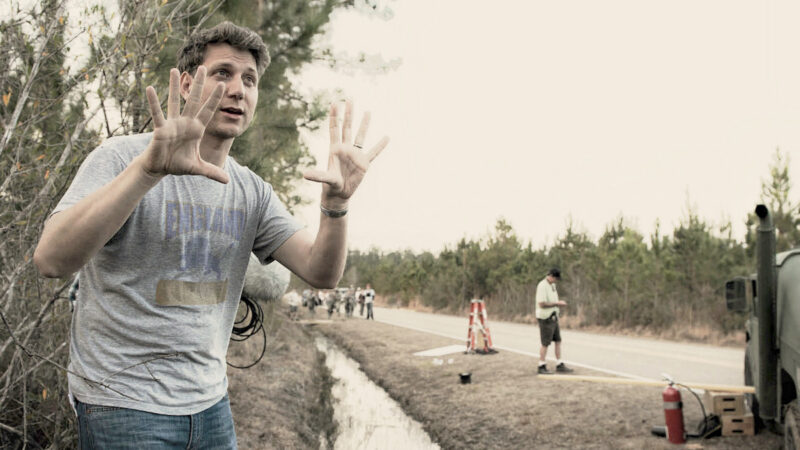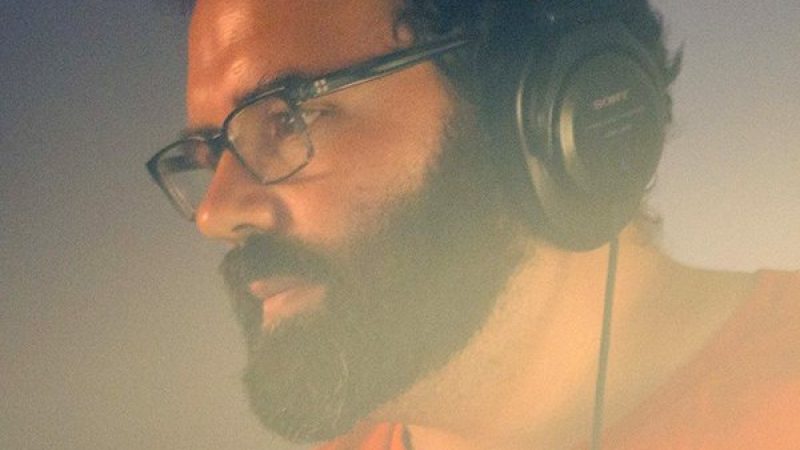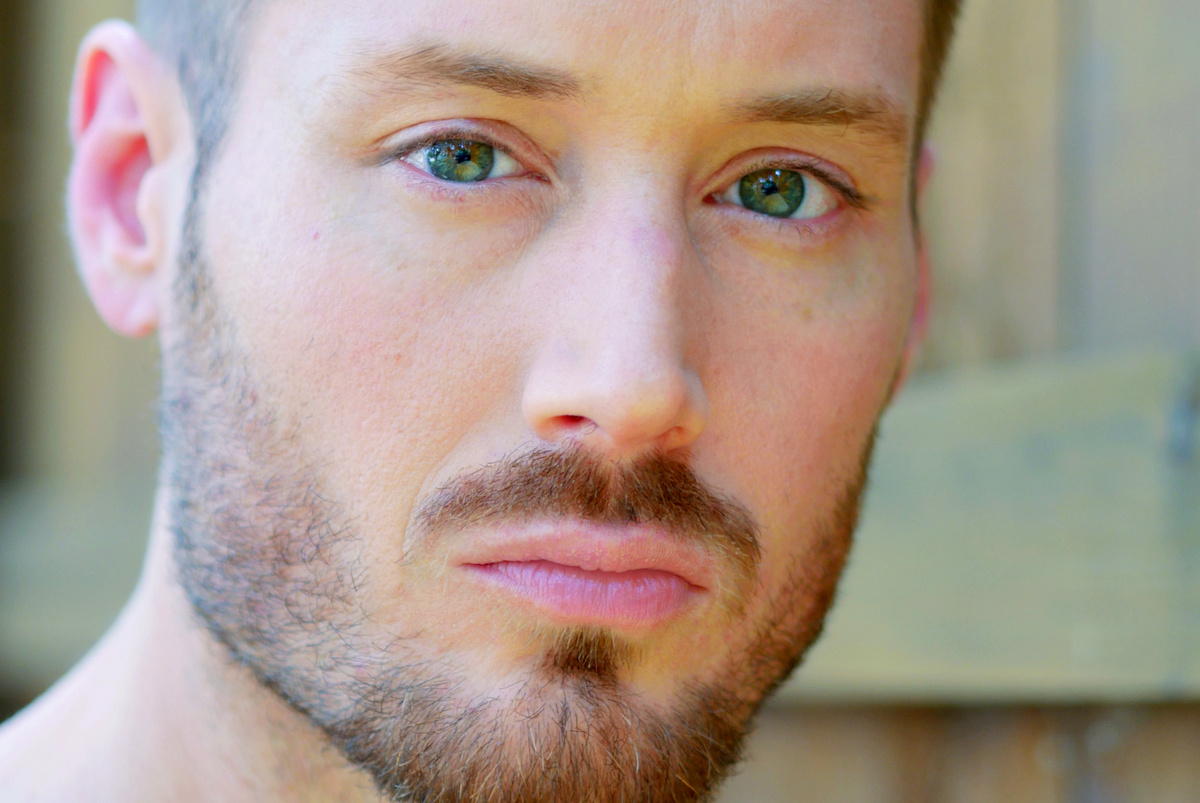
My initial observation of acting came by way of being left in front of the TV when I was young. It was the late 80’s and shows like Knight Rider and Magnum P.I. ran daily in the afternoons. I recall realizing quite early that these were works of fiction, but I had no idea of craft. That bug for fiction stuck with me until high school, when I had my first big epiphany in acting. I was in a production of The Importance of Being Earnest, playing Lane the Butler.
One night early in the run, a piece of the set fell into our makeshift fireplace. You could hear a pin drop in that theatre. To a couple of untrained high school students, this was the holy grail of unwanted events. Without missing a beat, I heard myself adlib, I trust you’ll keep warm now, sir, and exited. The audience roared. There could have been more to that scene that Oscar Wilde had written. In fact, I’m sure there was – but there’s something to be said. About a Midwestern sensibility of keeping things short, sweet, and not overstaying your welcome. To my chagrin, the whole night was electrified from then on.
What was a boring old play from a writer we were not yet familiar with as students became a piece where the comedy blossomed. They say the acting bug is lifelong, and it seems I had caught a terminal case right at that moment.
Watch The Pilgrim Official Trailer Starring Jeff Worden
indieactivity: What acting technique do you use?
Jeff Worden (JW): I went on to gain my degree in Theatre and Studio Art at the University of Iowa. It was phenomenal training – phenomenal. There, I was in Iowa City, studying under Professors who learned directly from Sandy Meisner and Jerzy Grotowski. The program’s emphasis was on new work, and I happened to luck out and share those hallways with classmates like Samuel D. Hunter (The Whale), Sean Christopher Lewis and Jennifer Fawcett. I was auditioning for short films that were directed by a young Scott Beck & Bryan Woods (A Quiet Place). I hold my time training at the University of Iowa against any other program in the country.
After leaving school, I went on to New York to train with Anthony Abeson, Katherine Powell-Roman and Austin Pendleton. Pendleton would later cast me in Tennessee Williams’ Vieux Carré at The Pearl Theater Company, marking my Off-Broadway debut. I further cut my teeth working in experimental plays with John Jahnke and the Hotel Savant and apprenticing with The Wooster Group. It was a great time to live and learn in New York.
How’d you connect to the project? Did you audition? If you did, would you still have got the part?
Jeff Worden (JW): I had worked with Josh a few times prior to The Pilgrim. We initially met through a mutual friend, Jamie Carrillo, when Jamie and I were doing a play together at The Flea. He said there was this filmmaker, he knew who was looking for specific talent and that I may want to throw my hat in to audition. So, I did – in the basement of a pub that Josh was bartending way back when in Tribeca. Here I was, in the basement next to the empty kegs, inhabiting a space that was supposed to be a forest, all as Josh played bird sounds from an iPod nearby. I think he offered me the part the next day, and that kicked off over a decade of collaboration.

Let’s take this project you did; how’d you prepare: cast, physicality, climate, demands of the project?
Jeff Worden (JW): For me, a big part of any character I play is how they move. The physicality of a character, however subtle, needs to be a clear and singular vocabulary of their own. How someone holds themself, how they move, how they breathe – that is the engine from which the emotions stem from. I had a teacher say, “You cannot emote until you first mote,” and that’s true – you cannot feel until you move. Emotion stems from motion.
So often, I find my way into a script by finding how the character moves, how they move through space, and then how they move with or against other characters to get what they want. Will grew up around horses and under that mercurial Wyoming sun. One minute it’s 100 degrees, the next it’s 40 and windy. It is truly a magical place. Everyone I met there had a sense of stoicism about the elements; the kind of people that don’t complain about the sizzle of the sun on their skin or the sting of a winter wind. Will, despite fleeing for London to start his own life, is still forged in that upbringing, so ensuring that “cowboy-up” mindset was beneath the Moss Brothers suits and loafers was important.
As one of the cast on the project, how did this ‘choice’ work for you?
Jeff Worden (JW): There’s a scene in the arena where Will is having a drunken breakdown. Playing inebriated is always a bit freeing for an actor because you’re allowed to be big, but it’s also a trap – you must still have enough control to keep it laser-focused for the cameras. It was an exhilarating shoot that night, because here we were, in an actual rodeo arena – the smell of the dirt, the horses, the sweat still lingering – under those big beaming lights out in what felt like a million stars. You can’t get that on stage. That’s the beauty of acting on location: sometimes, all you must be is present and let the circumstances do a bit of the heavy lifting for you.
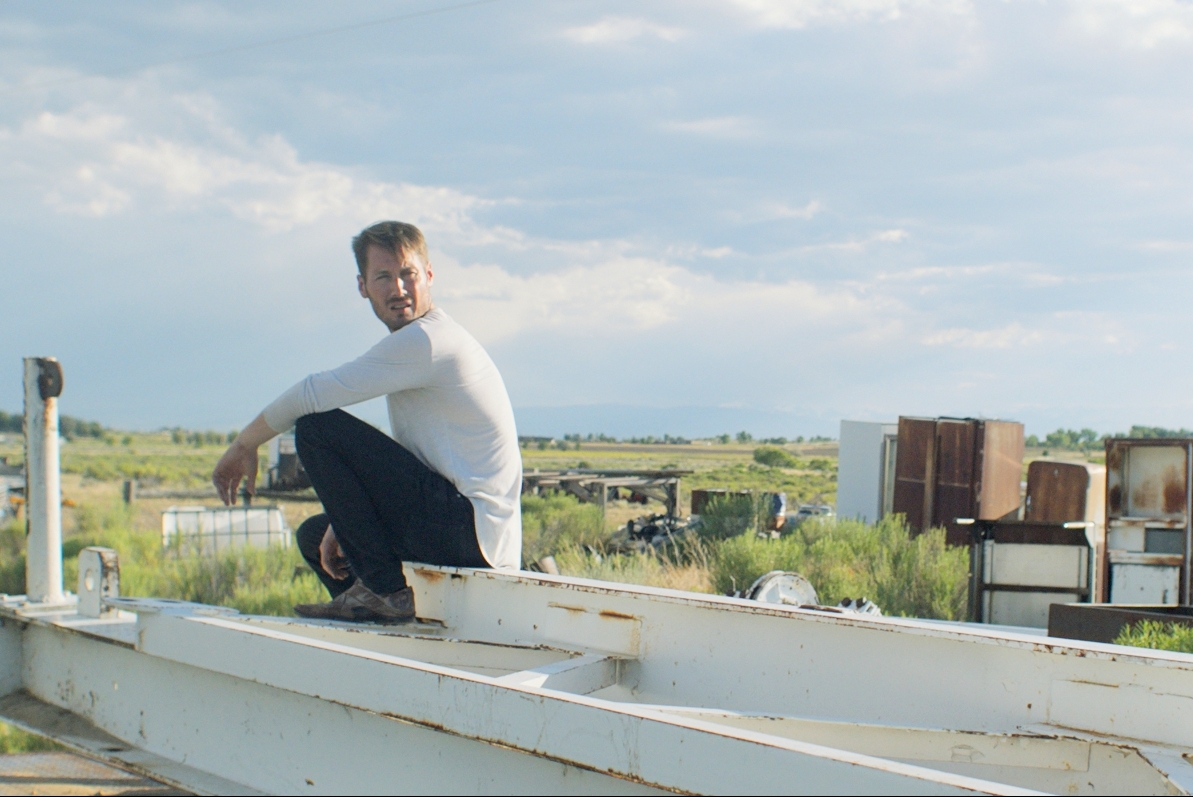
How do you create the character from a script into a person?
Jeff Worden (JW): Josh is amazing to work with and may be the most actor-friendly director I’ve ever worked with. His respect for the craft is second to none. He really lets you – in fact, insists upon – giving you time and space to make choices and to swing big. We would talk early on for hours on the phone about who Will was, what his relationship to his mother was like, what causes someone to move to another continent, and perhaps most importantly, what’s left for a son in the wake of their parent’s passing? What is it to be an adult?
That’s a big thing for Will – his success at creating distance with his problems has stunted his ability to process and mature. You see that with how he treats his sister, and frankly many of the women in his life. It was important we spoke about that early on so that I could digest it and get it into my body later, because once on set, I prefer to do as little script analysis and general “thinking” as possible. It’s about doing it at that point. I think many actors want a scene to be safe by turning it into a sort of static frieze, when acting should be anything but – especially on the day! I want dynamism in my work, even in quiet scenes of stillness, and I don’t think one can do that by talking it to death.
What part of the story challenged you? What drove you to the project?
Jeff Worden (JW): If Josh calls, I answer. I know well enough by now that when I get to work with him, he’s going to expect to be pushed by me and I by him. That’s part of the energy we share – we want to be better than ourselves and do better work than our past projects. On top of that, something I felt touching was just being close enough to observe some of the trials Josh was going through with his mother’s passing. The script had already been fully written and the plot secured long before his mother’s passing, so it’s not a 1:1 personal story as it might appear at first glance. It’s not my place to say too much, but as someone who has yet to experience the passing of a parental figure, I admired Josh for finding a way to carry on and do the work..
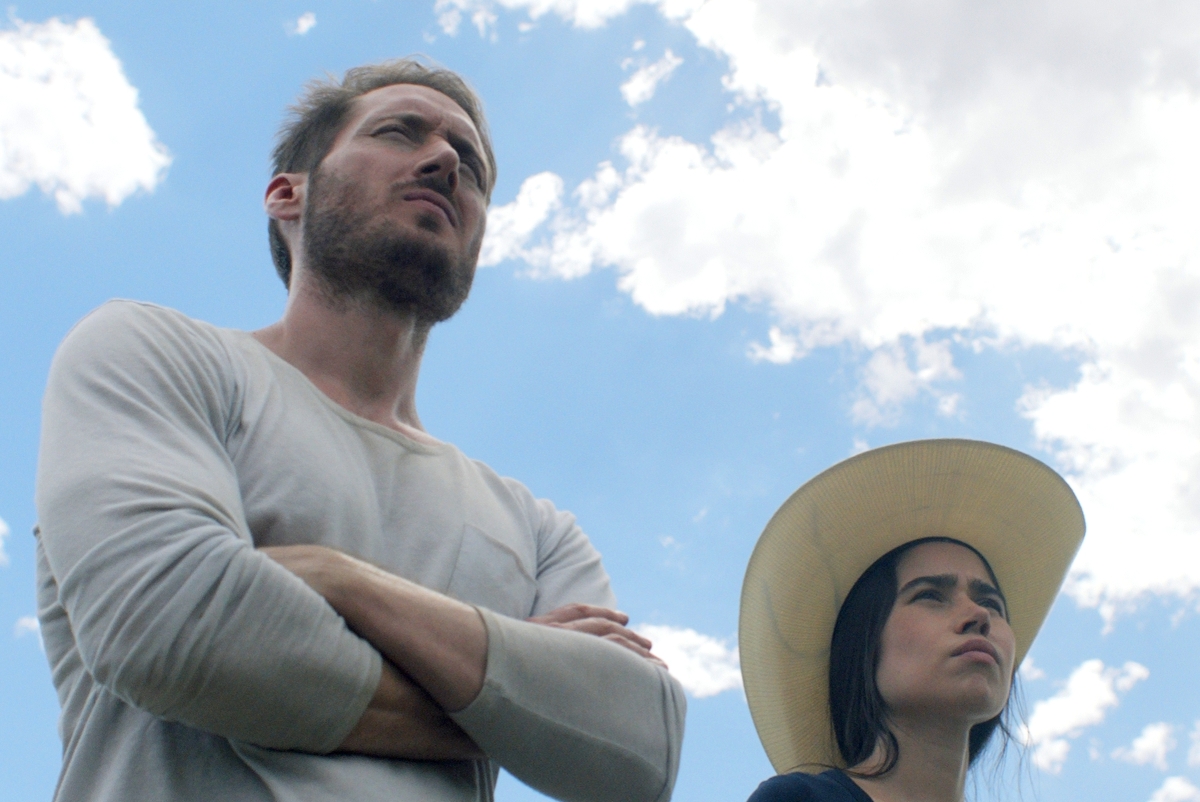
Explain a creative choice you took on the set of this production?
Jeff Worden (JW): Something that was important to me was to place some admission for Will – something he wanted to say and get off his chest – just after the last written line of the scene. Some admission or shortcoming he was willing to pay penance for and receive absolution that he may have got had the scene just been ten seconds longer. For me, I love playing a character who has a secret. All of us do. In every interaction we have, we hold some kernel of a private thought or intention toward the other person that we may all admit to having the time.
You’re not new to indie films. What do you enjoy about the work, that keeps you working?
Jeff Worden (JW): Indie films are the purest form of the craft of Cinema. They have the most challenging scripts, the least number of intended concessions, and the most collaboration. There is always a hierarchy on a set – there must be for the shoot to work – but on an indie set, there’s energy. People aren’t just sequestered to their little fiefdom of responsibility. It’s too small for that and the stakes are too high! Everyone must chip in, feed off each other, work together, problem solve, adapt, and give space. I love that about it.
Give an example of a direction you received from the director during the production?
Jeff Worden (JW): Josh gave me an amazing bit of direction early on when we were shooting in London. The scene is when Will first receives a phone call from his estranged sister, hearing the news of his mother’s passing. The impulse for many of us actors, of course, is to make it your “big scene” – your Sophie’s Choice moment, but Josh pointed out – and rightfully so – that often, the initial shock of something does the opposite to us. It makes us still, almost catatonic to expression. It’s not a Greek Tragedy when we hear bad news, it’s a deer frozen in the woods. That was very freeing to work with Will, as so much of him processing his world and his life comes from moments of tender stillness.
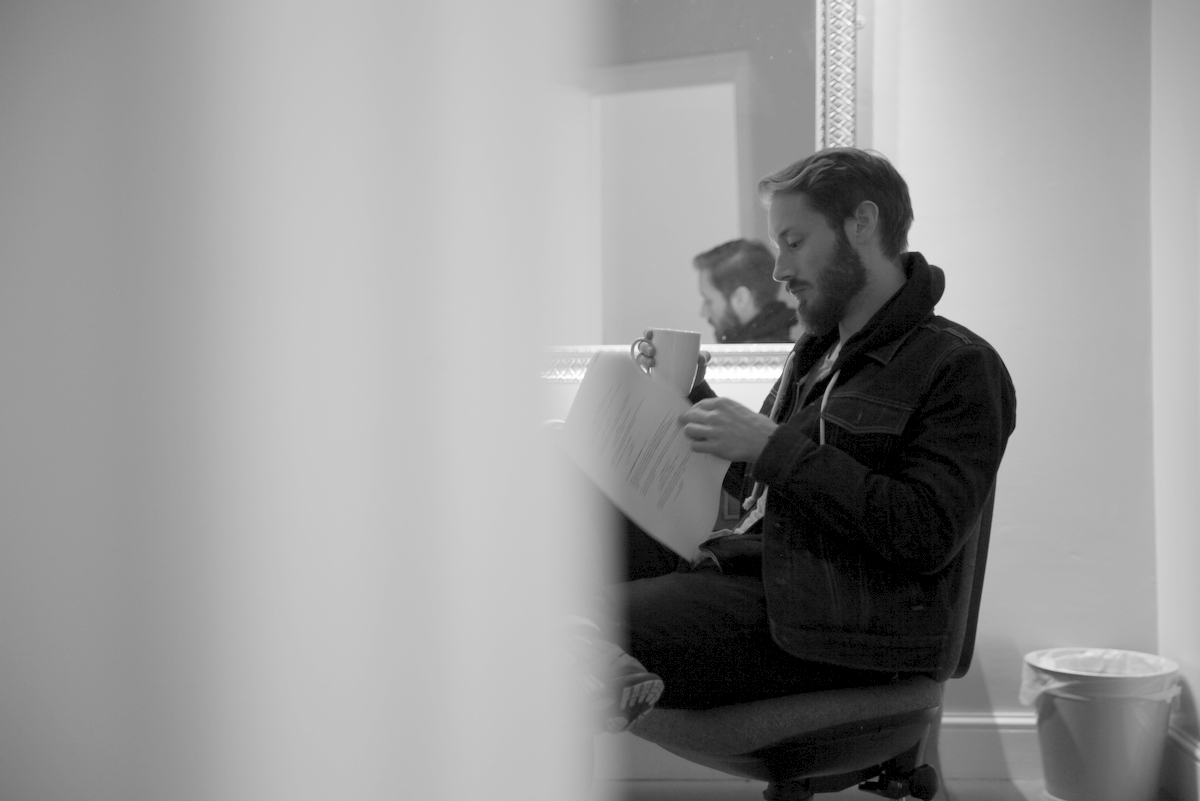
How did you collaborate with your cast members from scene to scene?
Jeff Worden (JW): I really dictate my interactions with the cast based on what the scene calls for. That’s not to say I take a Method approach – far from it – but if we’re about to film a breakup scene, I don’t want to be fraternizing with my colleague in a way that’s detrimental to the scene. The energy you bring as yourself carries into the character, after all. It’s often helpful to get some understanding of how your cast mate works – do they work on strict impulse? Are they more cerebral? Or are they listening? Are you? When we shot the scenes with Alva, Rachel Colwell was just a joy to work with.
She was approachable and easy and made it just an organically open environment to work with her in these scenes of relative stillness. There isn’t a lot of dialogue between Will and Alva, but they say so much in their silence. At the other end of the spectrum was Will’s relationship to Jeannie, and Rebekah Stein is someone whom I’ve admired since our days at the University of Iowa. She exudes this magnetic vulnerability that you just must watch and listen – she almost guides you through the scene! I really had it easy on this shoot when it comes to scene partners, to be honest.
Describe the feeling of responsibility you shouldered. Were you scared? Or did it fire you up? What scenes were difficult to shoot?
Jeff Worden (JW): I think the more pressure I’m under with my art, the better I feel. I’ve held spear before in summer stock theatre, and though the old adage “there are no small parts,” gets tossed around, those who said it likely never spent two months of performances in a muggy Iowa amphitheatre with nothing to do but act as set-dressing and get eaten alive by mosquitos. Acting is about risk, and the more risk a part requires, the more excited I get for it. The more pumped I am for a part, the more sense of flow I often feel.

What did you take away from the film production?
JW: I am really excited to know this made it out into the world and that other storytellers are also blazing a path into stories about the American West. Josh and I coined a phrase between us – Neo-Western. Somehow, The Pilgrim felt a part of that narrative of stories told about stoic people enduring their lives under the big canopy that is a huge portion of this country, the American West. Obviously, Taylor Sheridan and his Yellowstone universe have helped to put these stories back into the mainstream gaze with wild popularity, but I think he just spoke to a demand that was already there.
I live in Texas now, grew up in Iowa, and on this shoot, we spent time all over Nebraska & Wyoming. The people in these parts of the world lead a big life that can only really be described as “Western,” but that doesn’t mean shootouts at the saloon. It’s people of many walks of life, carving out a path for themselves in a way that any artist – any observer of people, really – would jump to get a chance to watch. They’re a proud people, with big hearts, big lives, and often surprisingly wild stories of both personal victories and defeats. Most of all, they’re honest people – almost to a fault. The American West is like no other place on Earth. I’m excited to see more stories told from these parts.
What do you like most about the director, and his/her collaboration with his/her team?
JW: Josh and I are a bit of kindred spirits in our sensibilities. We tend to hold a yarn spun from a bartender about Billy the Kid’s supposed death, not one stool over on equal grounds with a quiet spot to sit and absorb a Whistler painting in a museum. Storytelling is a medium where humanity is the paint, and it’s the pursuit of this medium that drives both of us. I will always value my time and my friend for that.
What is next for you?
JW: I’ll be seen at SXSW for Dutch Southern’s Only the Good Survive, which features a stellar cast: Jon Gries, D’Pharaoh Woon-a-Tai, Sidney Flanigan, Will Ropp, Fred Weller, Lachlan Watson, Darius Fraser – just a powerhouse cast of talented actors. I’m really excited for it.
What advice do you give actors regarding what you learnt on the project?
JW: Just as important as technical training for an actor is living enough life to know what it is you want to say. Your craft will only be enriched by the life you fill it with.
Tell us what you think of the interview with actor and actress name. What do you think of it? What ideas did you get? Do you have any suggestions? Or did it help you? Let’s have your comments below and/or on Facebook or Instagram! Or join me on Twitter.
Jeff Worden Socials
IMDb
Instagram
MORE STORIES FOR YOU
The Key Facts Behind How Jeff Nichols Made The Indie Hit MUD
Jeff Nichols gives himself directorial challenges to master on every project.
In Conversation with Michael Oblowitz Director of Confidential Informant
Confidential Informant stars Mel Gibson, Dominic Purcell, and Kate Bosworth

